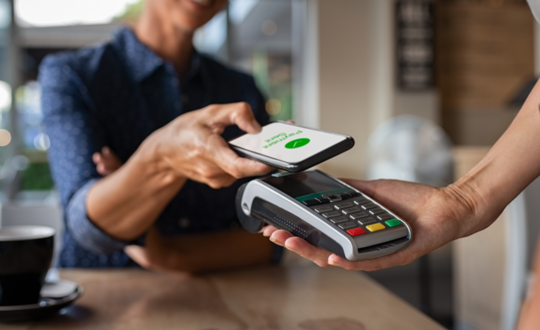Contactless Layaway Payment Options Thrive in Coronavirus Economy
Sep 01 2020
With consumers reluctant to use cash in the COVID-19 pandemic, a newer form of purchase financing has gained traction with retailers and payment providers. Purchasers are finding alternatives to building significant credit card debt, paying cash or pulling directly from existing accounts.
Paypal has entered the ‘Point of Sale Financing’ market, bringing attention to the newly popular payment option and raising the stakes for others in the market. Paypal’s new ‘Pay in 4’ product in this space allows a customer to pay for a consumer item worth between $30 and $600 in four installments, instead of either paying at once or adding to your credit card balance. PayPal says Pay in 4 will not charge consumer interest or even retailer processing fees, but it will charge late payment fees of up to $10.
In May, PayPal began offering contactless point of sale payments using QR codes, using smartphones for customer convenience and safety without requiring much in the way of additional equipment for retailers. The company has also announced a PayPal key, a virtual card that works with Google wallet. These growth options lead PayPal to estimate an increase of 70 million customers in 2020 alone, which is about the same number of customers PayPal added between 2017 and 2019.
Ally Financial also jumped into the point of sale financing market this week, announcing a deal through MasterCard’s Vyze financial platform. This is Ally’s first foray into point of sale retail loan market for higher ticket sale options.
Forbes noticed this trend, writing “Australian company Afterpay, whose entire business is staked on the scheme, has sailed from a market valuation of $1 billion in 2018 to $18 billion today. Eight-year-old San Francisco startup Affirm is rumored to be planning an IPO that could fetch $10 billion. … Afterpay charges retailers roughly 5% of each transaction to offer its financing feature. It doesn’t charge interest to the consumer, but if you’re late on a payment, you’ll pay fees. Affirm also charges retailers transaction fees. But most of the time, it makes users pay interest of 10 - 30%, and it has no late fees.” Other players in the point of sale financing space include Sezzle and Klarna.
PayPal’s entry at lower fees could shake this market, as PayPal sees point of sale financing as just another aspect of its profitable payments network, and not its entire business model. Forbes reports “Eighty percent of the top 100 retailers in the U.S. let customers pay with PayPal, and nearly 70% of U.S. online buyers have PayPal accounts. As Covid-19 made online purchases skyrocket, it saw record revenues of $5.3 billion and profits of $1.5 billion. Its stock has ballooned, adding $95 billion of market value over the past six months.” PayPal is clearly one of the companies benefiting most from the COVID-19 contagion fears and quarantine.
PayPal CEO Dan Schulman said, "In the midst of the COVID pandemic, we have seen substantial macro changes that we believe will have a lasting and profoundly positive impact on our business." If the payment habits of consumers sustain after the current quarantine, PayPal and the Fintech companies competing with it may be the important new players in retail finance.